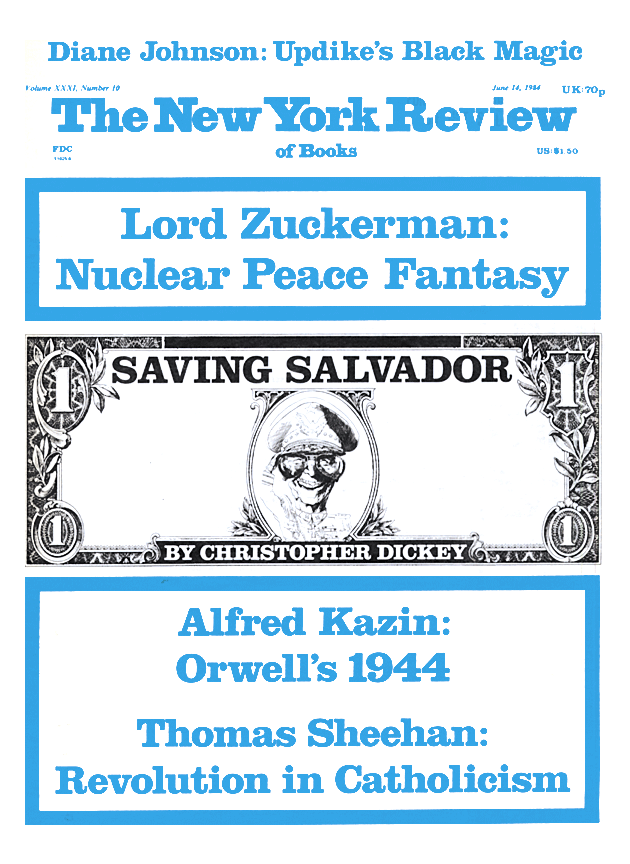In response to:
Closet Modern from the March 15, 1984 issue
To the Editors:
Here are a few footnotes to the interesting review of Norman Page’s life of Housman by my friend Bernard Knox [NYR, March 15].
Profesor Knox regrets that Housman edited Manilius instead of Aeschylus, Sophocles, and Euripides. During the first part of his career, Housman published a good many critical notes on Greek tragedy, until he decided to concentrate on Latin rather than Greek because, in his own words, he “despaired of attaining eminence in both.” These notes are learned and ingenious, but they are not very often right. If Housman had persevered with Greek into the second half of his career, he would doubtless have improved on this work. But he did well to concentrate on Latin, because the nature of the problems suited him far better.
Housman indeed used to call Manilius an indifferent poet, but in his own rhetorical manner he is a far better poet than Housman’s romantic dogmatism allowed him to admit. So far from the world of Housman’s poetry being a refuge from the world of his scholarship, it was the other way round; in the world of his scholarship, he was free to enjoy rhetoric, wit, elegance as they are displayed by writers like Manilius and Ovid, the subject of some of his best work, writers whom his timid adherence to romantic doctrine forced him to condemn.
Housman suppressed his Cambridge Inaugural Lecture not simply because of a misprint, but because he had severely criticised Swinburne for being wrong in a matter in which Swinburne turned out to be right; the facts have been known for some time.
Mr. Martin Higham, the owner of the document which appears to contain a list of male persons in France whose favors were enjoyed by Housman, kindly sent me a Xerox copy of it after reading the review of Richard Graves’s Life which I reprinted in Blood for the Ghosts. Each name of a profession—boxeur, danseur, nègre, etc.—has opposite it a number; all the numbers are under ten, and 7 and 3 occur most commonly. I do not believe these numbers represent, as Mr. Graves imagined, the price paid to each person; surely they tell us what mark—you would say, grade—Housman gave him, the maximum being ten.
Hugh Lloyd-Jones
Wellesley, Mass.
This Issue
June 14, 1984


